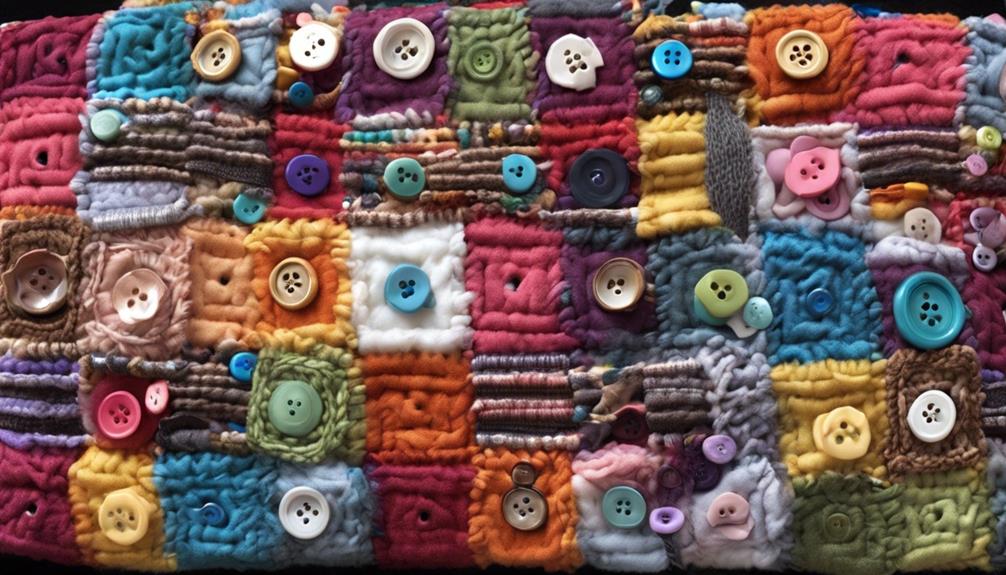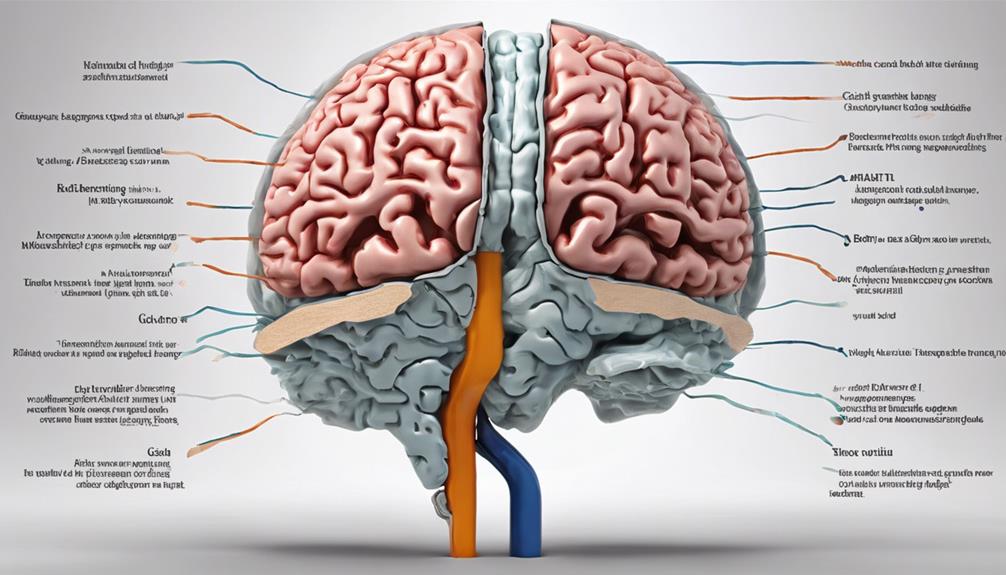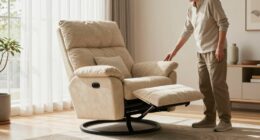While studying the complex process of caring for individuals with dementia, we came across an exciting innovation called the fidget blanket. This revolutionary creation has generated considerable excitement in the realm of dementia care, providing a distinct method for meeting the needs of those affected by this condition.
With its multifaceted benefits and tailored design, the fidget blanket has shown promising results in enhancing the quality of life for those with dementia. Join us as we uncover the fascinating world of fidget blankets and their impact on dementia patients.
Key Takeaways
- Sensory stimulation aids memory recall and cognitive function.
- Personalized design with familiar objects enhances emotional well-being.
- Variety of textures and colors improve fine motor skills and coordination.
- Fidget blankets reduce agitation, provide comfort, and enhance quality of life.
Benefits of Fidget Blankets for Dementia Patients
Fidget blankets for dementia patients offer a comforting blend of sensory stimulation and engagement, fostering relaxation and reducing stress levels. These specialized blankets cater to the unique needs of individuals with dementia by providing a range of textures, fabrics, and attachments that offer calming and soothing effects. Through sensory experiences tailored to the individual, fidget blankets can help enhance memory recall and cognitive function.
Moreover, these blankets play a crucial role in improving fine motor skills and coordination in dementia patients. The tactile stimulation they provide not only offers a sense of comfort but also helps individuals focus their attention, ultimately boosting their overall well-being. By incorporating fidget blankets into their daily routine, individuals with dementia can benefit from the therapeutic effects of sensory stimulation while receiving emotional support.
How Fidget Blankets Help With Dementia
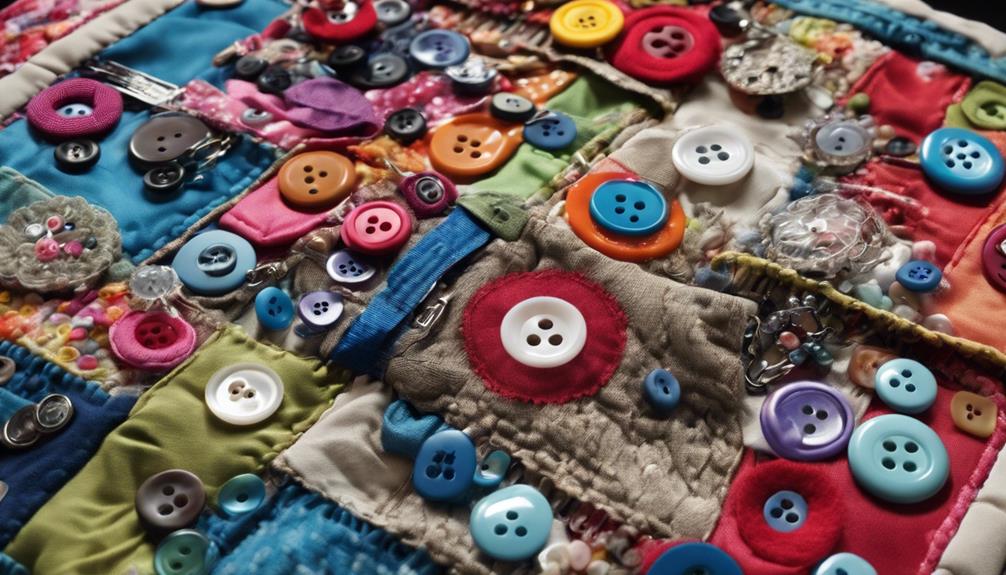
Transitioning from the benefits of fidget blankets for dementia patients, we can explore how these specialized blankets provide essential support for individuals living with dementia. Fidget blankets, also known as sensory blankets, are specifically designed to offer sensory stimulation and engagement for dementia patients. These blankets often come in weighted forms, providing a comforting presence that can reduce anxiety and stress. By incorporating various textures, fabrics, and attachments, fidget blankets stimulate the senses, aiding in memory recall and cognitive function. They play a crucial role in improving fine motor skills and coordination in dementia patients. The tactile stimulation and distraction provided by these blankets can enhance the overall quality of life for individuals living with dementia. Moreover, they create a sense of security and comfort, supporting emotional well-being and reducing agitation in those facing the challenges of dementia.
| Benefits of Fidget Blankets for Dementia Patients |
|---|
| 1. Provide sensory stimulation |
| 2. Aid in memory recall and cognitive function |
| 3. Improve fine motor skills and coordination |
| 4. Support emotional well-being and reduce agitation |
Designing a Dementia-Friendly Fidget Blanket
Designing a dementia-friendly fidget blanket involves carefully selecting sensory activities tailored to meet the unique needs of individuals with cognitive impairments. When creating such specialized fidget blankets for adults with dementia, it's crucial to consider the following:
- Incorporating a Variety of Sensory Textures: Including different textures like soft fabrics, bumpy materials, and smooth surfaces can offer a range of tactile experiences for the users, stimulating their senses effectively.
- Utilizing Vibrant Colors and Attachments: Bright colors and engaging attachments such as buttons, zippers, and ribbons can capture attention and encourage interaction, providing both visual and tactile stimulation.
- Personalizing with Familiar Objects: Customizing the fidget blanket with photo slots for family pictures, favorite objects, or items with sentimental value can evoke memories and emotions, fostering a sense of comfort and familiarity for individuals with dementia.
Tips for Using Fidget Blankets
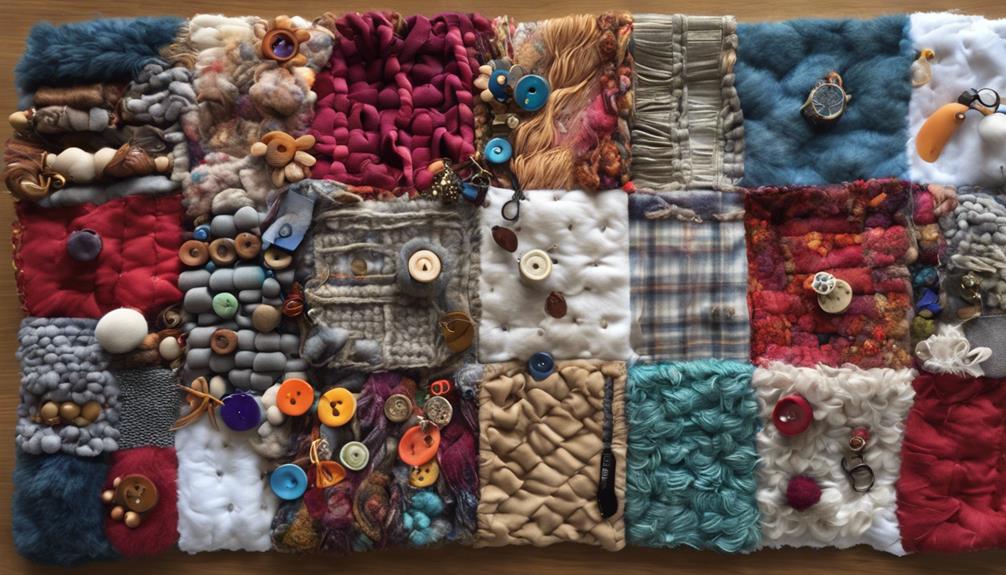
When introducing fidget blankets to individuals with dementia, it's important to start by gently familiarizing them with the blanket and its various sensory elements. Fidget blankets, specifically designed as dementia products for the elderly, cater to sensory processing by offering textures, fabrics, and attachments that engage the senses. These blankets have shown to have calming effects, reducing stress and anxiety in dementia patients.
The sensory stimulation provided by fidget blankets can enhance focus, attention, and coordination. Moreover, the use of fidget blankets can aid in memory recall and improve fine motor skills for individuals in various stages of dementia.
Being mindful of the specific needs and preferences of each person with dementia is crucial when introducing these blankets, as personalized engagement can maximize their benefits. By incorporating fidget blankets into caregiving routines, we can create a supportive environment that promotes comfort and well-being for those living with dementia.
Making Fidget Blankets at Home
Let's explore how crafting fidget blankets at home can be a rewarding and personalized way to cater to the individual needs and preferences of those with dementia.
- Customization: Making fidget blankets at home allows for tailoring each blanket to suit the specific sensory needs and preferences of the person with dementia, incorporating textures, colors, and activities that are most engaging for them.
- Cost-Effective DIY: DIY fidget blankets can be a more budget-friendly option compared to purchasing pre-made ones, saving money while still providing a meaningful and therapeutic tool for individuals with dementia.
- Therapeutic Crafting: Engaging in the process of crafting fidget blankets can be a soothing and creative activity for caregivers and family members, offering a way to bond with their loved ones while creating something that's beneficial for their well-being.
Crafting these personalized fidget blankets at home not only benefits individuals with dementia but also creates a sense of fulfillment and connection within the caregiving community.
Frequently Asked Questions
Do Fidget Blankets Work for Dementia Patients?
Yes, they do work for dementia patients. Fidget blankets provide sensory stimulation and engagement, reducing stress and anxiety.
By offering various textures and attachments, these blankets improve focus and attention, enhancing fine motor skills and coordination.
They're beneficial tools for emotional support and tactile stimulation.
What Are 3 Things to Never Do With Your Loved One With Dementia?
When caring for a loved one with dementia, it's important to remember not to argue or correct them. Rushing or pressuring them can cause frustration. It's crucial not to dismiss their emotions; validation and empathy are key.
Avoid overstimulation and chaos, as simplicity helps reduce anxiety. Neglecting self-care is a no-go; taking breaks is essential for our well-being. Let's prioritize patience, understanding, and creating a calm environment for our loved ones with dementia.
How Do You Make a Fidget Blanket for Dementia?
We can make a fidget blanket for dementia by selecting soft and safe materials that engage tactile sensations. By incorporating various textures, fabrics, and interactive elements like buttons and zippers, we can promote cognitive engagement and fine motor skills.
Customizing the blanket with familiar items can evoke positive memories. It's crucial to ensure the blanket is securely constructed to prevent choking hazards and designed for easy maintenance.
What Is the Average Age of Death for Someone With Dementia?
When discussing the average age of death for someone with dementia, it's important to recognize the variability influenced by factors such as type of dementia and overall health.
On average, individuals diagnosed with dementia live for 4 to 8 years after symptom onset, with some surviving up to 20 years.
This range underscores the need for early detection, proper care, and support to enhance quality of life and extend lifespan for those living with dementia.
Conclusion
In the gentle embrace of a fidget blanket, those with dementia find a soothing oasis amidst the chaos of their minds. Each texture, button, and ribbon becomes a lifeline to memories long forgotten, sparking moments of clarity and comfort.
These simple blankets offer a bridge to the past, a connection to the present, and a beacon of hope for the future. Let's wrap our loved ones in warmth and understanding, one stitch at a time.
